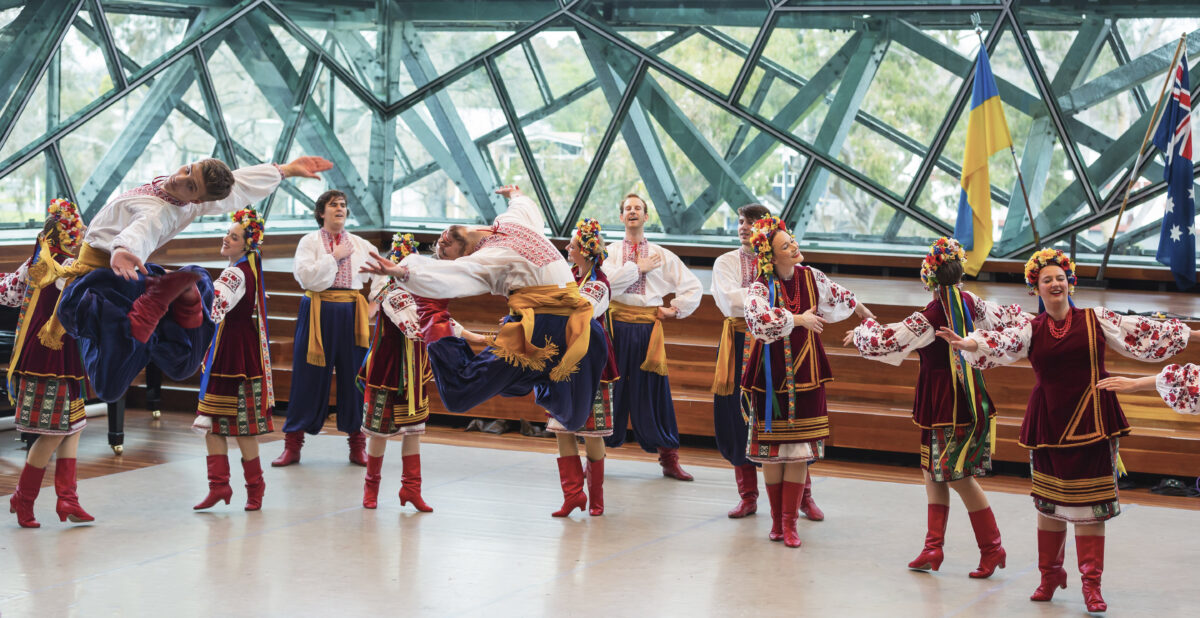
This is Part 1 in a five-part essay series. A version of this essay was originally published online and in print as part of “Faithful Presence in the Midst of Pluralism: Three Tensions” at Ad Fontes.
How should we as Christians, with our distinctive beliefs, practices, and values, live faithfully in an increasingly pluralistic age? In his widely influential work To Change the World: The Irony, Tragedy, and Possibility of Christianity in the Late Modern World, Christian sociologist of religion James Davison Hunter calls Christians to reject the dominant paradigms of defense, relevance, and withdrawal and instead embrace lives of faithful presence in their various callings and places, including higher education.[1] Hunter provides an inviting picture of what faithful presence looks like in both theory and practice.
The realities of pluralism and the “cross-pressures”[2] that we all experience as we seek to live faithfully while loving others mean that certain tensions characterize our attempts to be faithfully present. Christians who recognize the inevitability of these tensions are not necessarily unwilling to make hard choices, nor have they succumbed to compromise – accusations that may be raised by those who do not themselves feel the weight of the tensions. Rather, to live in the midst of these tensions means to recognize that we are not God, but serve One Who sees the bigger picture and is able both to forgive and to redeem all our failings. According to Hunter,
the call “to be in the world but not of it” is a call to abide in the will and purposes of God in the present world disorder with integrity, and the only way to reach for that integrity is to recognize the tension and to reside within it knowing that failure is inevitable, forgiveness is ever available, and the work of the Holy Spirit to transform and sanctify our efforts is always inscrutably at work.[3]
Christian philosopher James K. A. Smith concurs that living with tension is an inescapable aspect of Christian faithfulness: “the call to bear Christ’s image complicates our lives because it comes to us in the midst of our environments without releasing us from them. The call to discipleship complicates our lives precisely because it introduces a tension that will only be resolved eschatologically [that is, when Christ returns].”[4]
Smith further observes, “Faithful witness is a precarious dance.”[5] That is, faithfulness in the midst of pluralism is never a settled thing, but looks different in different times and places and for different individuals, families, schools, and churches. Any step of faithfulness in the present, any attempt to correct the excesses of the previous generation, may itself prove in hindsight to be an overstep in the other direction, itself in need of correction. Yet faithfulness resists the search for settled positions and final solutions. So we cannot avoid the dance, but can only seek to dance more wisely and more faithfully, in full recognition of its precarity.
This essay series describes some of the steps of the dance. In the next three essays, I identify three tensions that are characteristic of Christian faithfulness in the midst of pluralism: affirmation and antithesis, engagement and distinctness, and humility and hope. Christian faithful presence tries to live in the midst of these tensions, rather than accepting easy resolutions of them that result in an abdication of faithfulness. In the final essay, I consider what it might look like to live in the midst of these three tensions in the context of higher education.
[1] James Davison Hunter, To Change the World: The Irony, Tragedy, and Possibility of Christianity in the Late Modern World (New York: Oxford University Press, 2010).
[2] Charles Taylor, A Secular Age (Cambridge, MA: Belknap Press, 2007); see also James K. A. Smith, How (Not) to be Secular: Reading Charles Taylor (Grand Rapids, MI: Eerdmans, 2014).
[3] Hunter, To Change the World, 183-184.
[4] James K. A. Smith, Awaiting the King: Reforming Public Theology (Grand Rapids, MI: Baker, 2017), 192.
[5] Smith, Awaiting the King, xiii.
Emily G. Wenneborg is Director of Pascal Study Center and Assistant Professor at Urbana Theological Seminary. She has a PhD. in Philosophy of Education and Religious Studies from the University of Illinois Urbana-Champaign. Emily is interested in the possibilities and tensions of formation for Christian faithfulness in the midst of deep pluralism.

I cannot find that verse “be in the world but not of the world”?